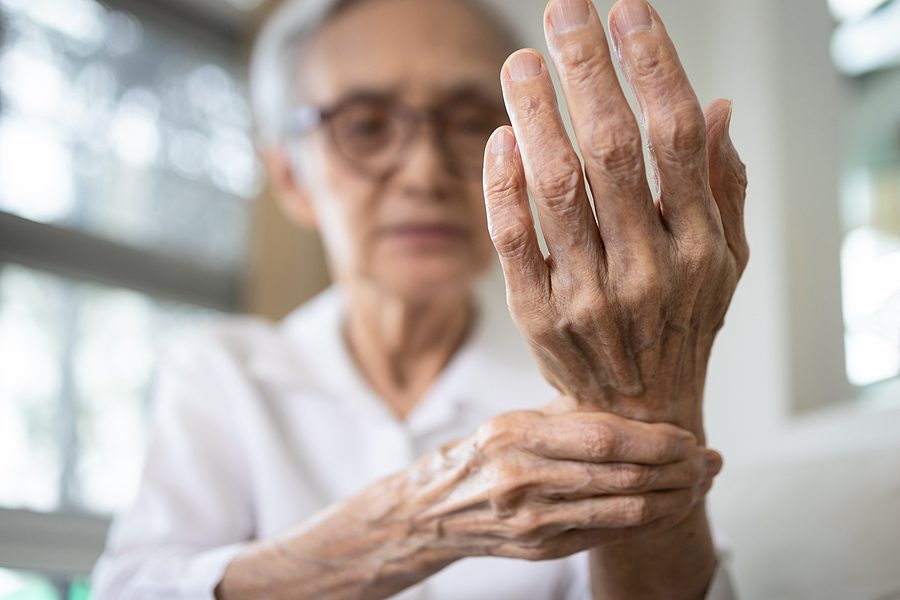Arthritis, or joint disease, affects roughly half of all Americans over 65. While there are many different types of arthritis, they all have symptoms that include swollen, stiff, and painful joints. Generally, arthritis can be painful to deal with. And in more severe cases, it can affect daily life; and limit your ability to move your joints. Although arthritis isn’t exclusive to older individuals, it is more likely to develop with age. If your loved one is living with arthritis, this guide can help you understand the issues they may face.
Types of Arthritis
There are over 100 different forms of arthritis. Your loved one’s physician can identify which arthritic conditions they have. Below, we will discuss the most common conditions. These include:
- Osteoarthritis is the most common form of joint disease. Osteoarthritis occurs when the cartilage in your joints thins, reducing the mass between your bones. The bones begin to press or grind against each other, causing pain.
- Rheumatoid Arthritis is an autoimmune disorder where your body’s immune system reads healthy joint tissue as viral and attacks them. The immune system damages the lining of your joints, causing swelling and inflammation.
- Psoriatic Arthritis is an inflammatory form commonly associated with psoriasis. Psoriasis is a skin disease that causes the skin to become covered in a red, scaly rash. It occurs when inflammation causes joints and the skin to inflame and swell. Along with psoriasis, it can be painful and difficult to move joints.
Other forms of arthritis can affect the spine, ankles, and other joints. Lupus is an autoimmune arthritic condition. Ankylosing spondylitis, which mainly affects the spine, reduces flexibility. It causes spinal joints to tighten up from inflammation. Gout is an arthritic condition that causes the buildup of uric acid in the joints that harden and crystallize.
Reducing Risk Factors
Arthritis prevention comes from working towards a healthier lifestyle and reducing joint strain. Weight loss and management can help prevent joint problems, as added weight further stresses joints. If your elderly loved one was an athlete or worked a physically demanding job, they may have a higher risk of developing it. Athletic activities or physical jobs can cause repeated stress to joints. These repetitive motions can wear down the cartilage that cushions your joints. Additionally, smoking can increase your risk of developing rheumatoid arthritis and heightens symptoms. Smoking also limits physical activity and can weaken the immune system.
Arthritis Care
Communicate with your loved one’s doctor about mitigating arthritis pain and symptoms. Discuss any changes to care plans with your loved one’s doctor before administering care yourself. Because every individual’s medical situation is unique, some care practices may not be necessary. Common ways to care for arthritis include:
- Hot & cold treatments
- Over-the-counter anti-inflammatories or pain relievers
- Staying active
- Getting enough rest
- Eating healthier
- Eating more anti-inflammatory foods in their diet, such as fatty fish or green, leafy vegetables.
- Have them take prescriptions provided by the doctor.
Arthritis can affect their your loved one’s life majorly. Chronic pain, stiffness, and mobility restrictions can make daily care more challenging. If your loved one lives with severe arthritis, consider hiring a home health aide for professional care and assistance.
Safe Harbor Healthcare Services does not provide medical, healthcare, or financial advice via articles. This material has been prepared for informational purposes only. It is not intended to provide, and should not be relied on for medical advice.
Safe Harbor Healthcare Services has provided excellent home care on Staten Island since 1967. Our services help the elderly and disabled live safely and independently; while giving their families the peace of mind they need. For more information contact us by clicking here, or call (718)-979-6900.

